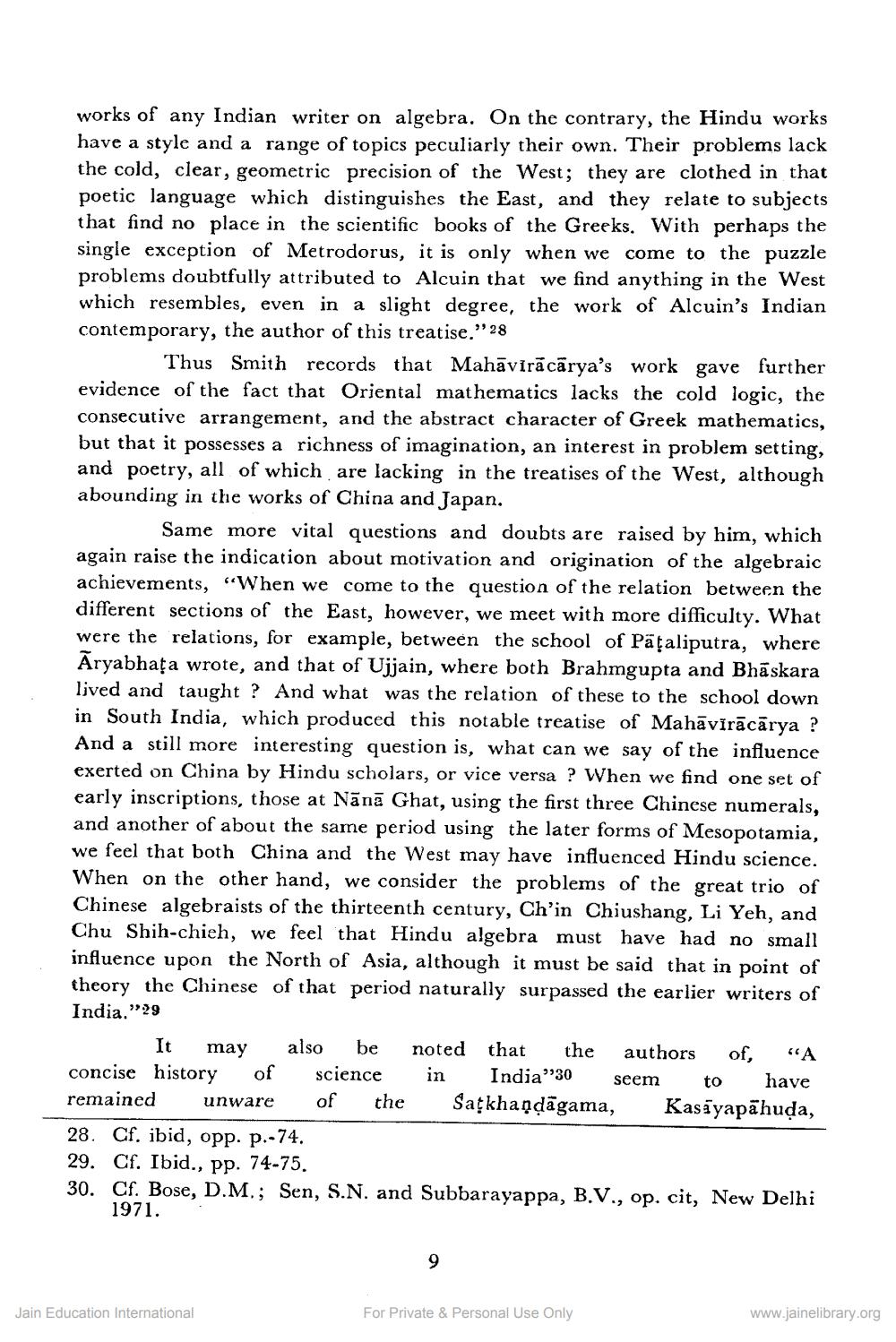________________
works of any Indian writer on algebra. On the contrary, the Hindu works have a style and a range of topics peculiarly their own. Their problems lack the cold, clear, geometric precision of the West; they are clothed in that poetic language which distinguishes the East, and they relate to subjects that find no place in the scientific books of the Greeks. With perhaps the single exception of Metrodorus, it is only when we come to the puzzle problems doubtfully attributed to Alcuin that we find anything in the West which resembles, even in a slight degree, the work of Alcuin's Indian contemporary, the author of this treatise." 28
Thus Smith records that Mahāvirācārya's work gave further evidence of the fact that Oriental mathematics lacks the cold logic, the consecutive arrangement, and the abstract character of Greek mathematics, but that it possesses a richness of imagination, an interest in problem setting, and poetry, all of which are lacking in the treatises of the West, although abounding in the works of China and Japan.
Same more vital questions and doubts are raised by him, which again raise the indication about motivation and origination of the algebraic achievements, “When we come to the question of the relation between the different sections of the East, however, we meet with more difficulty. What were the relations, for example, between the school of Pašaliputra, where Aryabhata wrote, and that of Ujjain, where both Brahmgupta and Bhāskara lived and taught ? And what was the relation of these to the school down in South India, which produced this notable treatise of Mahāvīrācārya ? And a still more interesting question is, what can we say of the influence exerted on China by Hindu scholars, or vice versa ? When we find one set of early inscriptions, those at Nānā Ghat, using the first three Chinese numerals, and another of about the same period using the later forms of Mesopotamia, we feel that both China and the West may have influenced Hindu science. When on the other hand, we consider the problems of the great trio of Chinese algebraists of the thirteenth century, Ch'in Chiushang, Li Yeh, and Chu Shih-chieh, we feel that Hindu algebra must have had no small influence upon the North of Asia, although it must be said that in point of theory the Chinese of that period naturally surpassed the earlier writers of India."29
It may also be noted that the authors of, “A concise history of science in India"30 seem to have remained unware of the Satkhaņdāgama, Kasāyapāhuda, 28. Cf. ibid, opp. p.-74. 29. Cf. Ibid., pp. 74-75. 30. Cf. Bose, D.M.; Sen, S.N. and Subbarayappa, B.V., op. cit, New Delhi
1971.
Jain Education International
For Private & Personal Use Only
www.jainelibrary.org




